“It’s the most rank hypocrisy I’ve ever witnessed,” says British photographer Mark Neville. “It’s obscene that he should come to Ukraine.” Neville, who first began photographing communities around the country in 2016, left London for Kyiv permanently in 2020. When we speak, Boris Johnson is on his way to the city.
A 2020 Deutsche Börse Photography Foundation Prize nominee, a core part of Neville’s practice is making and disseminating photo books with a social conscience. “People develop an emotional relationship to books which they don’t to newspapers or the internet,” he explains. “You might have a group of diplomats debating a particular war, but it can take a pop song or a poem to change how people think about a conflict.”
Videos by VICE
It’s a concept he’s employed throughout his career, perhaps most notably with Battle Against Stigma (2015-2018). After spending three months with British paratroopers in Afghanistan, Neville returned home with PTSD and spent two years undergoing therapy. He conceived the book to help others, distributing it to homelessness and mental health charities. Kyiv Military Hospital subsequently got in touch, leading to his now longstanding preoccupation with Ukraine.
Today, with 100,000 Russian soldiers amassed at the Ukrainian border, Neville’s latest book, Stop Tanks with Books, aims to appeal to the international community. 750 copies are going to people with real influence in shaping Ukraine’s future – key policymakers, ambassadors and MPs as well as celebrities and the media – and he is encouraging people to email him so he can post a free copy to anyone with the power to support the country. “It’s my way of fighting back,” he says, “because the war won’t end with Ukraine.”

VICE: What’s the current atmosphere in Kyiv? Mark Neville: The rhetoric has driven up tension, currency is down, business is difficult. It’s not pleasant, everyone has a plan for if bombs start falling – an escape bag with walkie-talkies, documents, dollars. At the same time, restaurants are packed. If fighting does reach Kyiv, people will not run. This is an independent state; it’s not for nothing this fight is going on.
Your relationship with Ukraine began in 2015, when Kyiv Military Hospital requested a copy of Battle Against Stigma**. What was your knowledge of the country prior to that?
**Like many people, minimal. I knew where it was, but nothing about the war. It had been portrayed by Russian propaganda as a civil war between east and west Ukraine, which has never been the case. Unfortunately, that misinformation was distributed widely by the Western press. I’m pleased they seem to be doing something now, but there’s been a woeful lack of coverage since 2014. The conflict is going on every day – something like 2.5 million people have had to leave their homes. Part of the problem, which I try to rectify in this new book, are these common misconceptions about Ukrainians, for example [that there is] a big right-wing movement – there’s a right-wing movement in every country! So there’s a fundamental misunderstanding about Ukraine, and a fear.
Can you speak about your first visit? What led you there? It was really bizarre. The hospital emailed saying they had veterans from Donbas with trauma. As a post-Soviet country they’re told to man up, so had no understanding of how mental health issues manifest themselves. I didn’t have a copy in Ukrainian, but said I’d do a PDF. My own country had tried to ban it [the first consignment of books was seized by UK Border Force], but this post-Soviet country had been so forward thinking to ask for a copy – I was touched, and I wanted to see what was happening. I instantly felt a deep connection with the country, and I recognised people’s trauma. The war is 600 kilometres from Kyiv, but you see it in people’s faces. I responded to that – I’d only just recovered from PTSD myself. Then, every time I had an opportunity to come, I would take it.
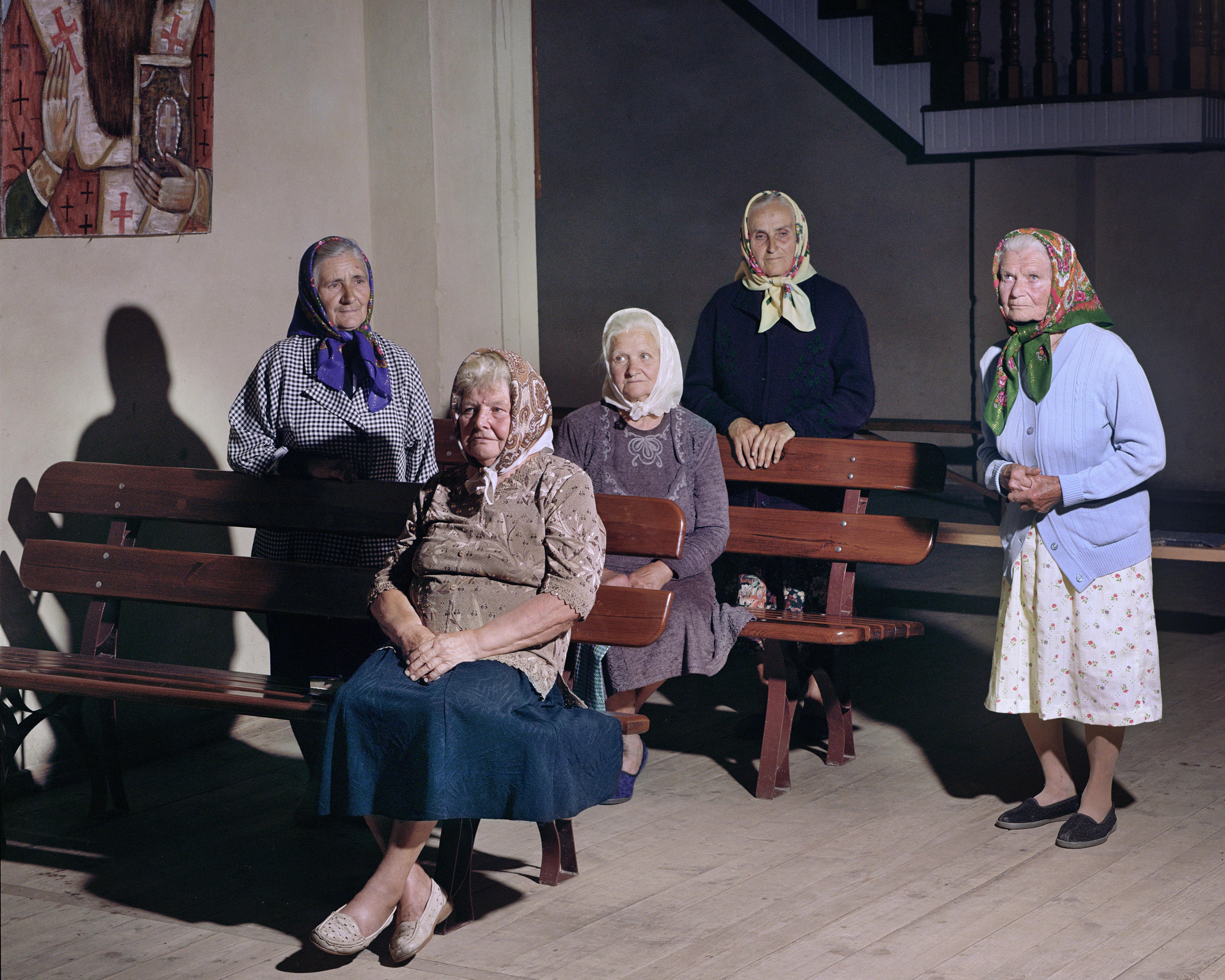
**You’ve been shooting in Ukraine for several years and the book explores different geographical and cultural areas, from soldiers in [frontline] Avdiivka to ravers in Kyiv. Was there a common thread among your subjects?
**What amazed me was how incredibly resilient Ukrainian people are. I talked to people who had lost everything – lost their homes, seen their neighbours killed, urgently needed medication – they never asked for help. They just made me a tea, sat me down and told their story. Unbelievable resilience and pride – I saw that reflected in the behaviour of everyone I talked to.
**And how did they respond to your camera?
**I have a big analogue camera, so it can be daunting. I ask permission before I take their picture, and try and have a nice chat. If they don’t like it, I don’t do it. I go back to the same places, that way people get used to you, not just in Ukraine but all my career. It’s the antithesis of photo journalism, in that it’s not about being parachuted in and out, but about a consistent relationship.
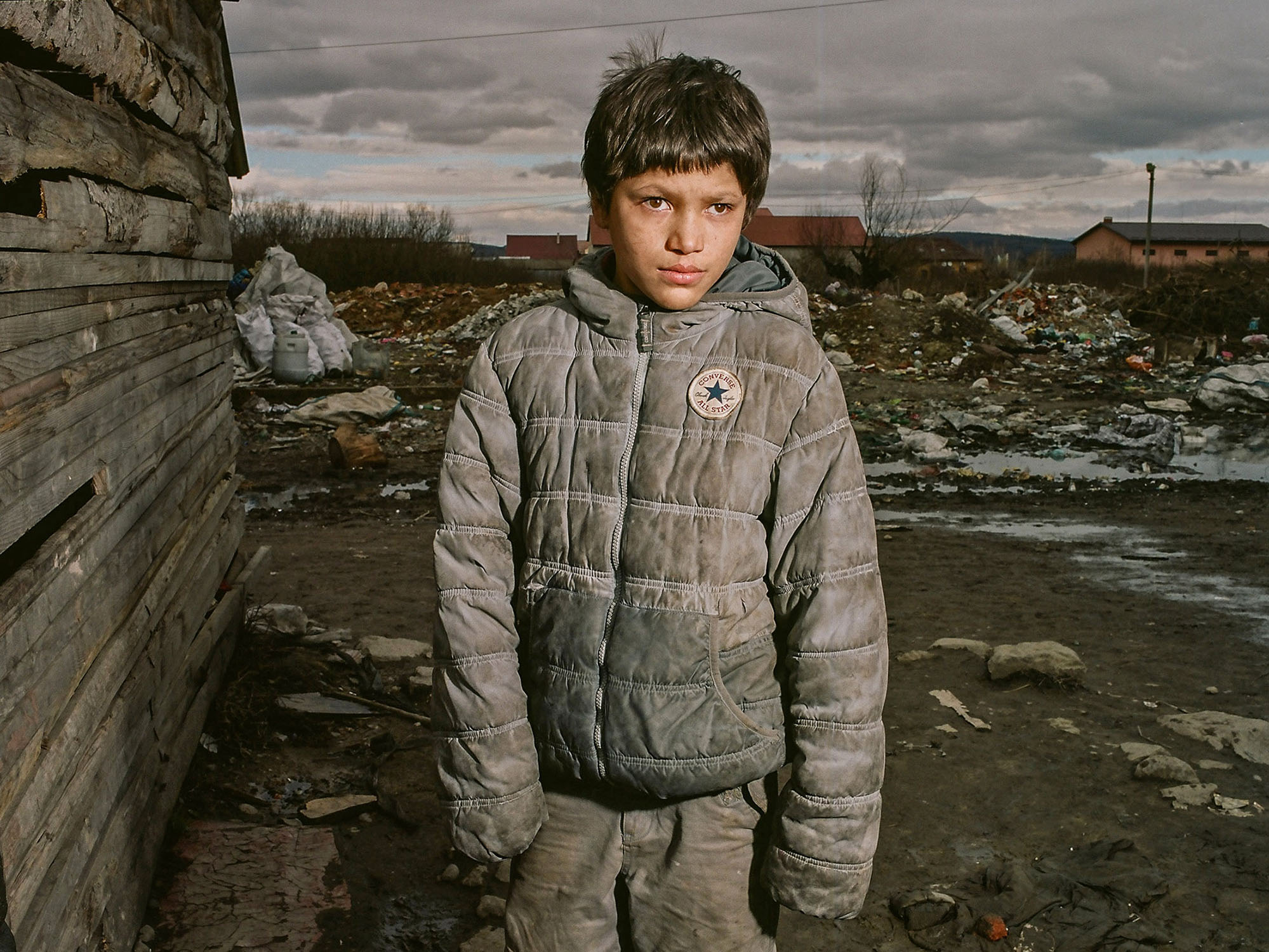
**Most of the pictures are in colour, but several are in black and white. Why is this?
**I try to reference paintings, film, photography from the 1960s and 70s, in my photographs. I might see something that reminds me of a French New Wave movie, and that will direct me. I experience the world like that – most of us do – so it makes sense in my work, on top of everything else. People think we’re living in a modern world, but many things are getting worse. Wealth inequality’s worse, racial inequality is still huge, environmental issues – so one of the underlying strategies I employ in that visual language is making subliminal messages.
**You moved to Ukraine in October 2020. What has this meant for your photographs?
**I see things completely different. I think I’ve veered were away from stereotypes, being more interested in the reality of how people live, which is very different from the Western gaze.
**And as a resident, what have you noticed?
**There was a pop star on Russian TV saying “we’re going to crush Ukraine”. This [was] on national television – it’s horrible. At the same time, we’ve been living with this for eight years. Once, when I took photographs in Odesa, military helicopters flew over the beach and thousands of people stopped and looked up. The second they were gone everyone was back to swimming. That’s a perfect metaphor for what it’s like in Ukraine; people just get on with their lives. A destabilised economy is scary too, but people have to make a living. But I don’t like this tension. What’s going to happen to my friends? Do I fight? I certainly don’t feel connected to Britain. I live in Kyiv. I don’t have a second home, this is it. So it’s deeply personal.
Stop Tanks with Books comes out in March is available for pre-order from Nazraeli Press.
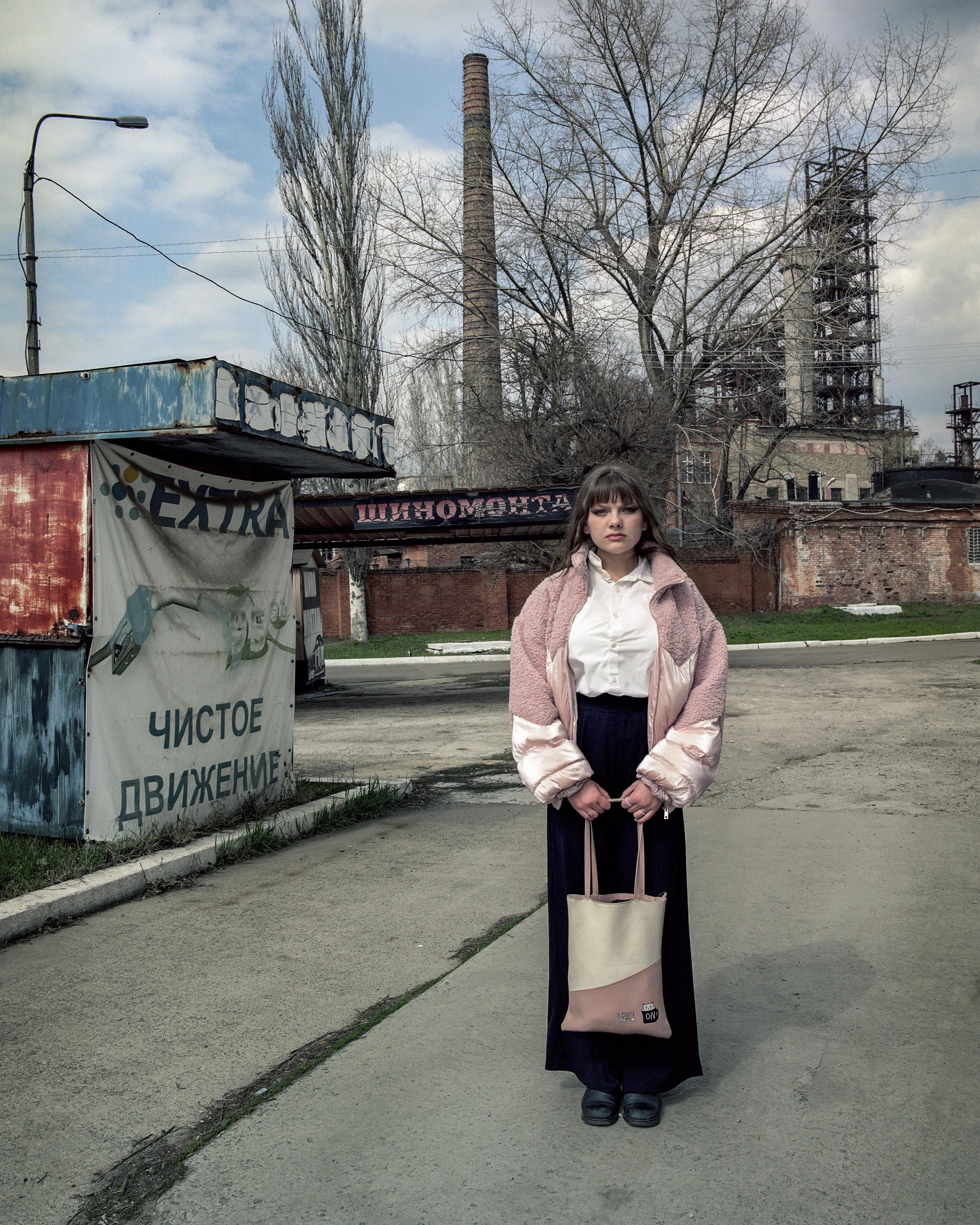
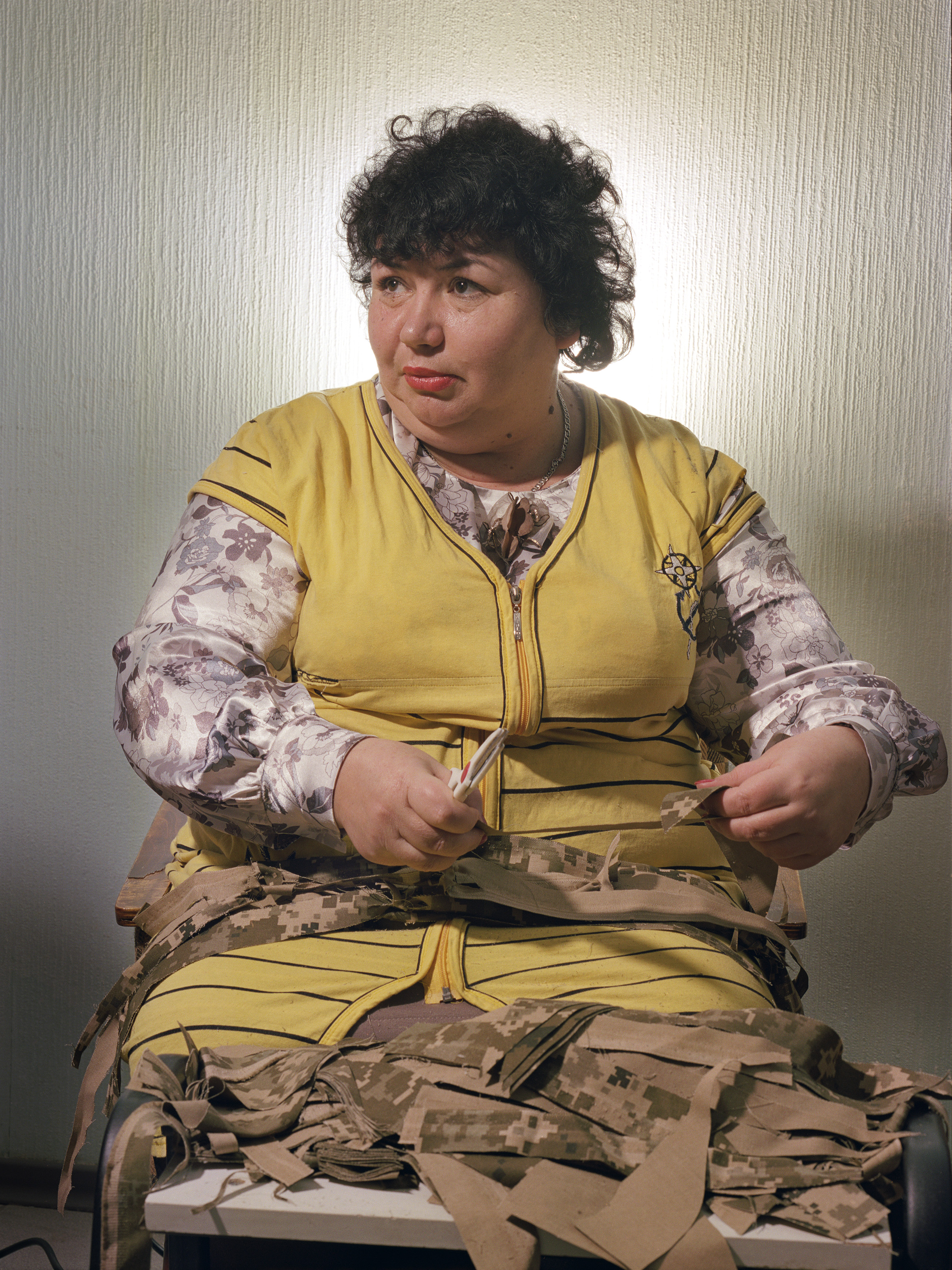

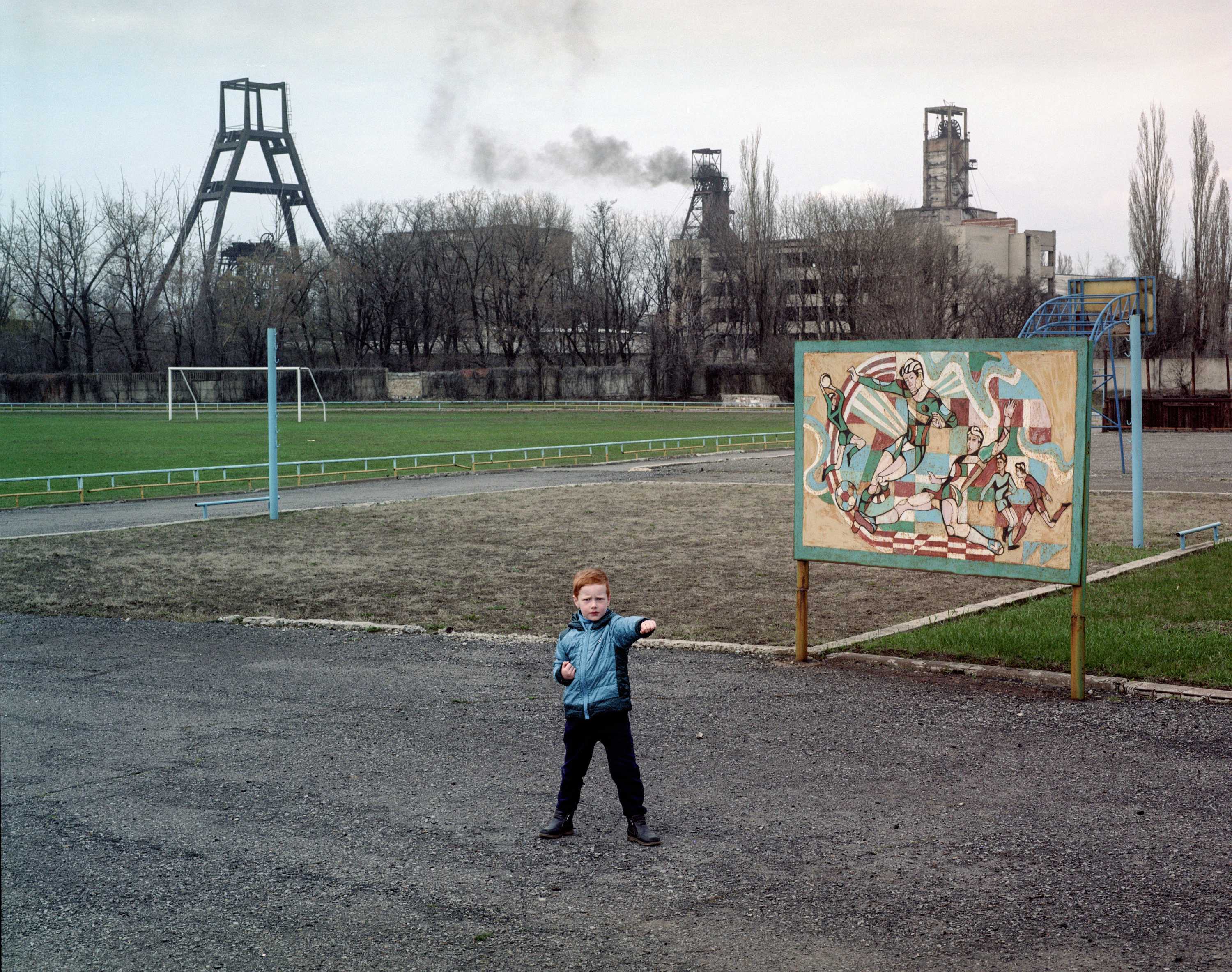

More
From VICE
-

(Photo by Francesco Castaldo/Pacific Press/LightRocket via Getty Images) -

M Scott Brauer/Bloomberg via Getty Images -

Firefly Aerospace/YouTube -

Justin Paget / Getty Images
